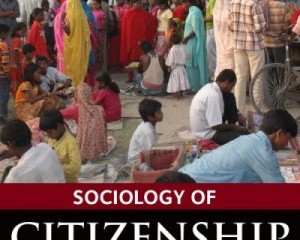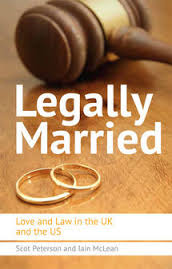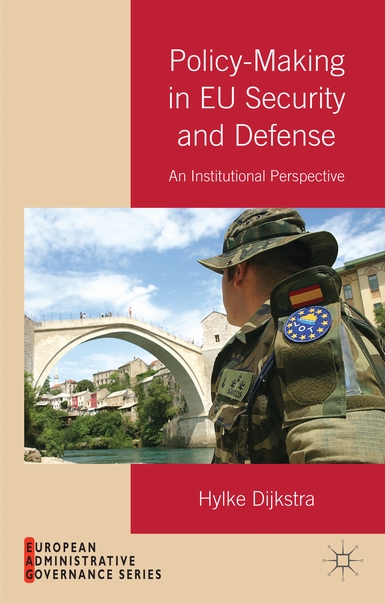
On Writing: A conversation with Tom Fletcher, author of Naked Diplomacy [Part III]
Dr Tristen Naylor, Oxford’s Lecturer in Diplomatic Studies, chatted with Tom Fletcher, the former British Ambassador and Downing Street foreign policy advisor, about his new book, Naked Diplomacy. In this three-part series their discussion explores everything from diplomacy in the digital era to the divide between academics and policy makers — with a nod to the intertextuality of W.H. Auden and Black Sabbath along the way. For Part I, see here, and Part II, see here. TN: I want to talk about your style of writing and your approach to it. I spend most of my waking hours reading works on diplomacy and I spend much of that time asking myself why I self-inflict such torture because so much of it – too much …

Democracy against the odds
Democracy in Africa: Successes, Failure and the Struggle for Political Reform testifies to the ability of African states to democratize against the odds. It effectively introduces a framework for understanding how leaders choose to respond to the pressure to liberalise their political systems, covering the recent history of African politics and providing great detail on the return of multiparty politics in Africa since the early 1990s. In this Q&A, Ian Cooper of the Department of Politics and International Studies (POLIS) at the University of Cambridge interviews Professor Nic Cheeseman, Associate Professor of African Politics, Jesus College, University of Oxford, on his recent publication.

Book Review: ‘Patronage as Politics in South Asia’ by Anastasia Piliavsky (ed.)
In March, Uday Chandra of the Max Planck Institute reviewed ‘Patronage in Politics in South Asia’ for our Migration and Citizenship. In this post, I want to respond with my own analysis of the book’s arguments. It is true, as Anastasia Piliavsky points out in her superb introduction, that patronage has long been treated as a distasteful element of developing societies. Personalised exchange between social unequals has been viewed as either a perversion of liberalism’s central tenets of equality and freedom of choice or as a screen concealing exploitation. Quid pro quo electoral exchanges, in which votes are bartered for particular services rendered, are considered ‘bad’ democratic practice. And of course, the use of public power for private gain is unequivocally condemned as corruption. It …

Book Review: ‘Patronage as Politics in South Asia’, edited by Anastasia Piliavsky
Patronage, which may be defined as a hierarchical relationship based on mutual obligations, is often regarded today as an unwelcome anachronism. Although this volume resists any single definition, the word ‘patronage’ reminds us of feudal and slave-owning societies of the past, where a few enjoyed the rights of citizenship at the expense of the many. Liberal democracies in our world have no place for patrons or clients, we believe, because universal adult franchise makes everyone legally equal and sovereignty rests with the demos.
Yet modern democratic societies face a peculiar paradox: they must elect representatives who enact laws and make policies even as they maintain the fiction that they are just like us. The paradox of modern democracy has little to do with the level of inequality in society. Neither is it specific to cultural contexts in which democracy appears to be compromised, even distorted, by patron-client relations. Patronage is everywhere, as this refreshing new volume argues, and its workings in India, the world’s most populous democracy, push us to think of citizenship as vertically differentiated or hierarchical.
There is a simple reason why the politics of patronage offends modern liberals. It strikes us as a perversion of a democratic ideal that treats all citizens, despite differences in income and wealth, as political equals. All are equally citizens in a democratic polity.

List of Books for Review
Politics in Spires is launching a new series in which contributers are invited review books written by Oxford academics. If you know of a recent (last 24 months) book by anyone at Oxford please submit it to katharine.brooks@politics.ox.ac.uk. Here is a provisional list of books for review:

On the path to inequality
What do we really know about how wealth and income have evolved since the 18th century and what lessons can we take from that for centuries to come? For Thomas Piketty in Capital in the Twenty-First Century, one lesson is clear: inequality is self-generating within a capitalist system.
Capital, a magnificent 650-page work, first appeared in France late last year and already looms, in Paul Krugman’s eyes, as ‘‘the most important economics book of the year — and maybe of the decade’’. It is important because inequality is emerging as what Barack Obama recently called ‘‘the defining challenge of our time’’.
Piketty, whose work on income inequality helped inspire the Occupy Wall Street movement, is particularly well placed to answer these questions. He is a bit of a strange creature in modern economics: as much an economic historian and archeologist as a number-crunching theorist.
An academic at one of France’s elite grandes ecoles, Piketty has spent the past 20 years not only seeking to come to grips with economic inequality but also to make his conclusions digestible for public consumption.
After a period at the top American universities in the 1990s, he returned to France convinced American economics was infused with a ‘‘childish passion for mathematics’’ and was merely a forum ‘‘for purely theoretical and often highly ideological speculation … preoccupied with petty mathematical problems of interest only to themselves’’. In Capital, Piketty has surely avoided that.

Same-sex marriage and the law: a Q&A with Oxford’s Iain McLean and Scot Peterson
I recently sat down with Dr Iain McLean and Dr Scot Peterson to discuss their new book, Legally Married: Love and Law in the UK and the US, which discusses the issues of same-sex marriage in both countries.
I found your book very interesting and though it addressed a very topical issue whilst providing a wealth of historical information and context. Could I start by asking what you think is driving the apparently accelerating legalisation of same-sex marriage worldwide?
Iain McLean: Which is the chicken and which is the egg? In North America, Latin America, and west/central Europe, social attitudes are changing further and faster than on any other moral issue that surveys have ever tracked. And politicians are responding. So are courts. Although judges like to believe that they are above politics, they would think hard about handing down constitutional interpretations that put them wildly at variance with public opinion.
There is a possible ratchet effect too. The US Supreme Court’s decision in Windsor v. US, in June 2013, holding that denial of federal tax benefits to same-sex widow Edith Windsor, which she would have received if her spouse had been male, was unconstitutional, has speeded up the process of legalising same-sex marriage in New Jersey, and may do so in other US states as well.

Policy making in EU Security and Defense: A Q&A with Hylke Dijkstra
Hylke Dijkstra, a Marie Curie fellow here in Oxford, has brought out a book that is of considerable contemporary interest as the EU struggles to relocate itself more firmly in the world not only of economics and finance, but of international relations. Congratulations to him!
Security has been a catch-phrase for our times. Military, civilian, human, legal, economic, environmental? Delivered by states, institutions, by NGOs, by citizens, by armies or judges? The term has been defined almost to ‘meaningless-ness’. Classical defence debates have virtually disappeared from our vocabularies. And no roomful of political scientists could ever agree on an exhaustive list of what the most important security and defence threats actually are. So Dijkstra’s book is an ambitious one.









